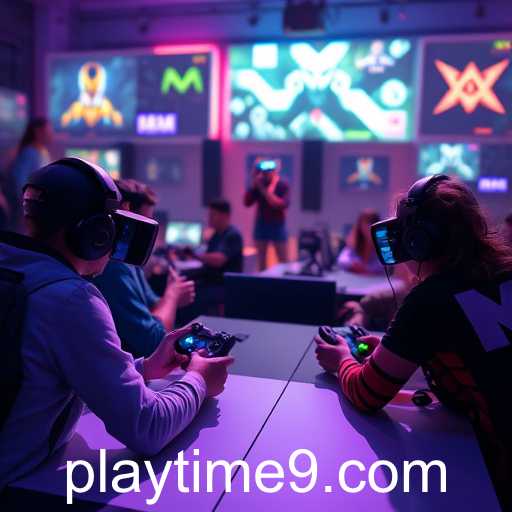Explore how digital playtime is transforming with new gaming trends and technologies in 2025.
In recent years, the concept of 'playtime' has undergone significant transformation, largely due to advancements in technology and evolving consumer expectations. As of 2025, the gaming landscape paints a vibrant picture of how digital playtime is structured in our everyday lives. This evolution is not only reshaping the gaming industry but is also influencing social dynamics, economic models, and cultural phenomena worldwide.
A standout trend in this domain is the integration of Augmented Reality (AR) and Virtual Reality (VR), making gaming experiences more immersive and interactive. The boundaries between the virtual and real worlds continue to blur, allowing players to engage in enhanced narratives and settings, offering a much-needed escape and entertainment for millions globally. This seamless integration of AR and VR technologies into mainstream gaming platforms elevates playtime, transforming it into a multi-sensory experience that goes beyond traditional gameplay.
Moreover, online communities have become essential to the gaming experience, significantly during the pandemic years when physical interaction was limited. Platforms such as Discord and Twitch have provided gamers a space to connect, compete, and collaborate in real-time, fostering global friendships and professional opportunities. These communities reflect a broader socio-cultural shift towards collaborative consumption and shared experiences, encouraging a sense of belonging and identity among participants who may never meet in person.
The business models within the gaming industry have also adapted to these changes, shifting towards subscription services and microtransactions. This model not only ensures a continuous revenue stream for developers but also promises gamers regular content updates and new features. As the gaming industry continues to thrive economically, analysts predict it may surpass other entertainment sectors, evidencing playtime's profound impact on global markets.
In conclusion, playtime as we know it takes on new meanings and dimensions in 2025. With the sustained integration of immersive technologies, the burgeoning development of online communities, and innovative economic models, gaming is more than just a pastime; it is an integral part of contemporary culture with significant social and economic implications. As we move forward, the ongoing dialogue between technology, society, and the gaming industry promises to chart exciting new territories in the world of digital playtime.




